All Stories
-
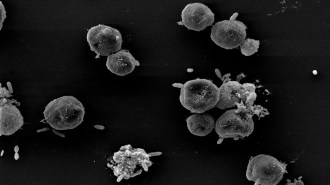 Microbes
MicrobesSome ‘friendly’ bacteria backstab their algal pals. Now we know why
The friendly relationship between Emiliana huxleyi and Roseobacter turns deadly when the bacteria get a whiff of the algae’s aging-related chemicals.
By Elise Cutts -
 Physics
PhysicsPhysicists stored data in quantum holograms made of twisted light
Light that travels in corkscrew-like paths provides a way to make holograms that store large amounts of data in ultrasecure packages.
-
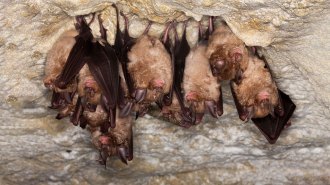 Life
LifeMammals that live in groups may live longer, longevity research suggests
An analysis of nearly 1,000 mammal species reveals that the evolution of mammals’ social lives and life spans could be linked.
By Jake Buehler -
 Earth
EarthWhat to know about Turkey’s recent devastating earthquake
Science News spoke with U.S. Geological Survey seismologist Susan Hough about the fatal February 6 earthquake near the Turkey-Syria border
-
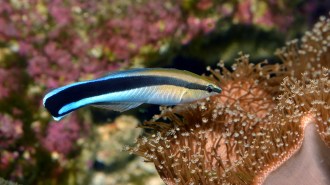 Animals
AnimalsFish can recognize themselves in photos, further evidence they may be self-aware
Cleaner fish recognize themselves in mirrors and photos, suggesting that far more animals may be self-aware than previously thought.
By Betsy Mason -
 Science & Society
Science & SocietyMany plans for green infrastructure risk leaving vulnerable people out
Green infrastructure is one way to help combat climate hazards like flooding. But without equitable planning, only some communities will benefit.
By Jude Coleman -
 Science & Society
Science & SocietyWe prioritize family over self, and that has real-world implications
Two studies show how family bonds improve personal and mental health, suggesting policy makers should shift away from individualistic mindsets.
By Sujata Gupta -

-

So much is lost when fossil treasures go private
Editor in chief Nancy Shute discusses how science and the public lose when fossils are privately sold.
By Nancy Shute -
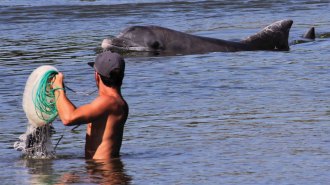 Animals
AnimalsHere are 3 people-animal collaborations besides dolphins and Brazilians
Dolphins working with people to catch fish recently made a big splash. But humans and other animals have cooperated throughout history.
-
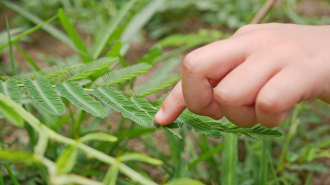 Life
LifeHow plant ‘muscles’ fold up a mimosa leaf fast
A mimosa plant revs up tiny clumps of specially shaped cells that collapse its leaflets, though why isn’t clear.
By Susan Milius -
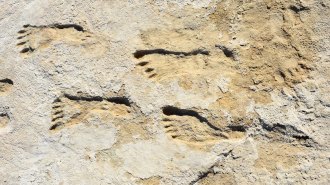 Humans
Humans50 years ago, scientists debated when humans first set foot in North America
In 1973, archaeologists debated when people first arrived in the Americas. Mounting evidence suggests its much earlier than they thought.